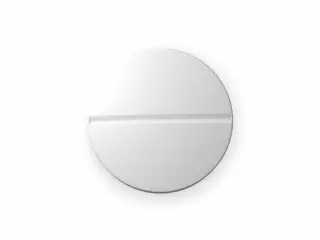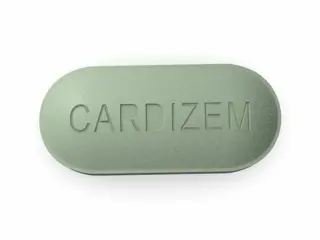Cardiovascular

Find a wide selection of effective cardiovascular medications designed to support heart health, manage blood pressure, and improve circulation. Shop trusted brands and formulations to help maintain your cardiovascular wellness with confidence.
The cardiovascular category includes a broad range of medications designed to treat heart and blood vessel conditions. These medications help manage blood pressure, heart rhythm, blood clotting, and other related issues. Below is a review of some popular cardiovascular drugs often found in online pharmacies.
Altace (Ramipril) is an ACE inhibitor used to treat high blood pressure and heart failure. It helps relax blood vessels, making it easier for the heart to pump blood. Patients using Altace often report fewer side effects compared to other blood pressure medications. It also reduces the risk of heart attacks and strokes in high-risk individuals.
Cardarone and Cordarone (Amiodarone) are antiarrhythmic drugs used to treat serious irregular heartbeats. These medications work by stabilizing the heart's rhythm and preventing abnormal electrical signals. While effective, they must be used cautiously due to potential side effects like thyroid issues and lung toxicity. Regular monitoring is essential during treatment.
Cardizem (Diltiazem) and Cartia XT are calcium channel blockers. They lower blood pressure and control chest pain (angina) by relaxing the blood vessels and reducing the heart's workload. Cardizem is often used in cases of high blood pressure and certain types of arrhythmias. Cartia XT is a long-acting form that allows once-daily dosing, improving patient compliance.
Coumadin (Warfarin) is a well-known anticoagulant prescribed to prevent blood clots. It is commonly used in conditions such as atrial fibrillation, deep vein thrombosis, and after certain surgeries like heart valve replacements. Warfarin requires careful monitoring of blood clotting levels (INR) to avoid bleeding complications. Diet and other drugs can impact its effectiveness.
Lanoxin (Digoxin) improves heart function by increasing the strength and efficiency of heartbeats. It is primarily used in heart failure and certain arrhythmias. Lanoxin must be dosed carefully because of its narrow therapeutic range; toxicity can cause nausea, vision changes, and dangerous arrhythmias. Regular blood tests help ensure safe use.
Lisinopril is another widely used ACE inhibitor for lowering high blood pressure and protecting the kidneys in diabetes. It shares many benefits with Altace, including reducing the risk of heart attacks and strokes. Common side effects include cough and elevated blood potassium levels.
Micardis (Telmisartan) belongs to the angiotensin receptor blockers (ARBs) class. It is effective in reducing blood pressure and offers kidney protection in certain patients. ARBs like Micardis tend to be better tolerated than ACE inhibitors, with fewer reports of persistent cough.
Nimotop (Nimodipine) is a calcium channel blocker used mainly to prevent brain damage after subarachnoid hemorrhage (bleeding in the brain). It helps relax blood vessels in the brain, improving blood flow. Nimotop requires careful dosing and is usually given in hospital settings.
Plavix (Clopidogrel) is an antiplatelet agent that prevents platelets in the blood from clumping together. It is often prescribed after heart attacks, strokes, or stent placements to reduce the risk of further clots. Plavix is usually well-tolerated but may increase bleeding risk, especially when combined with other blood thinners.
Samsca (Tolvaptan) is used to treat hyponatremia (low blood sodium) often caused by heart failure or liver disease. It works by helping the kidneys excrete free water without losing sodium. Samsca requires close monitoring of sodium levels during treatment to avoid rapid correction, which can be dangerous.
In summary, the cardiovascular medication category includes drugs for blood pressure control, antiarrhythmics, anticoagulants, and agents managing complications from heart and vascular diseases. Patients should use these medications under medical supervision due to possible serious side effects and the need for monitoring. Proper adherence and follow-up ensure the best outcomes for heart health.










